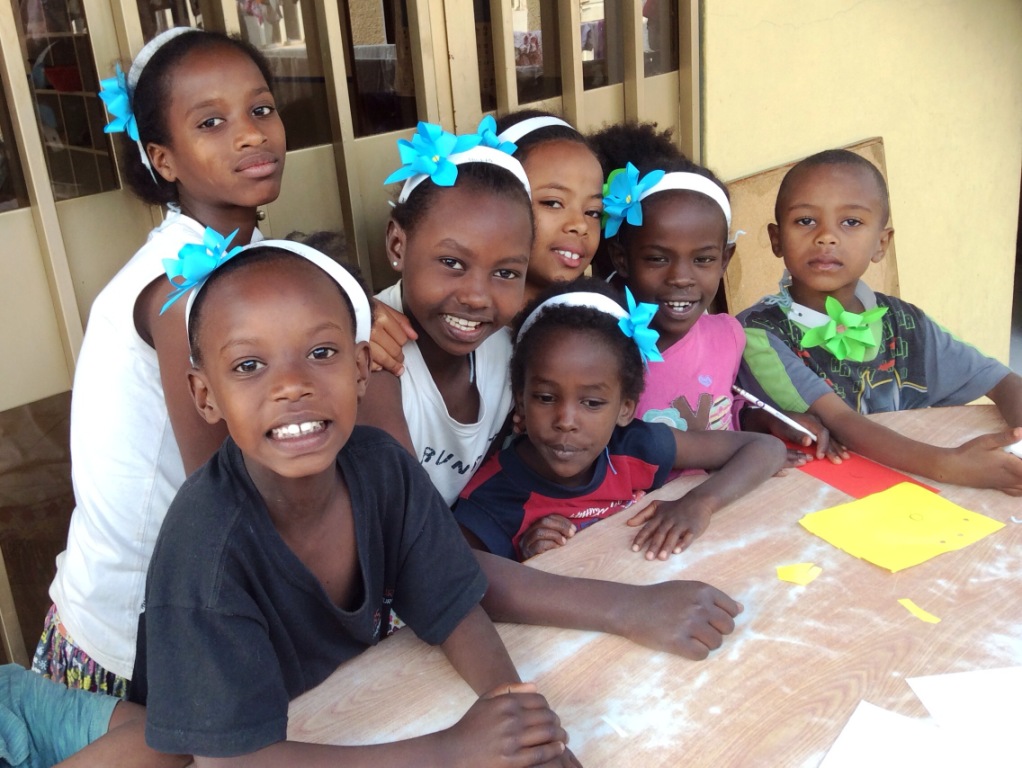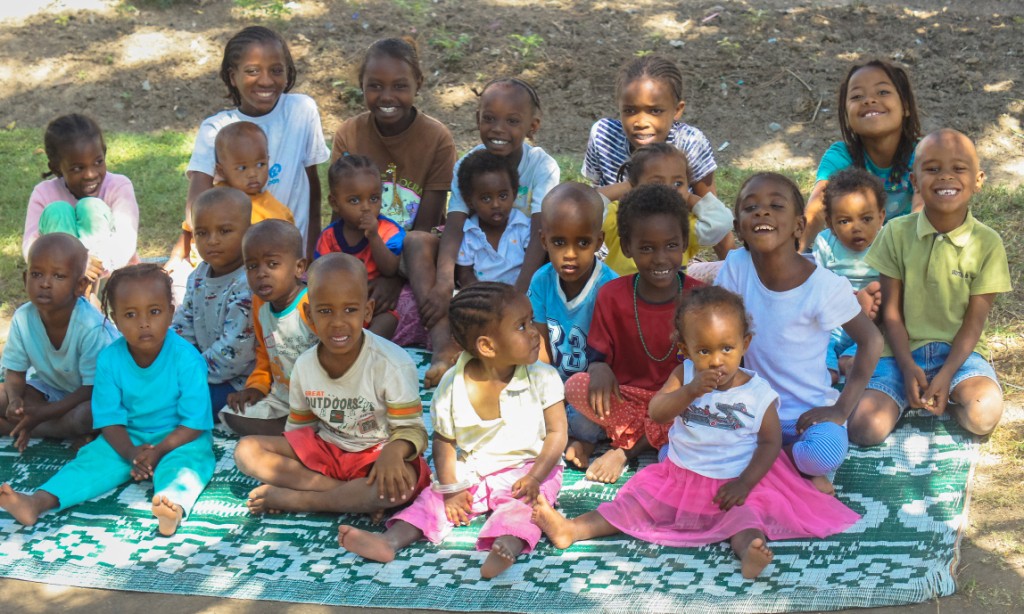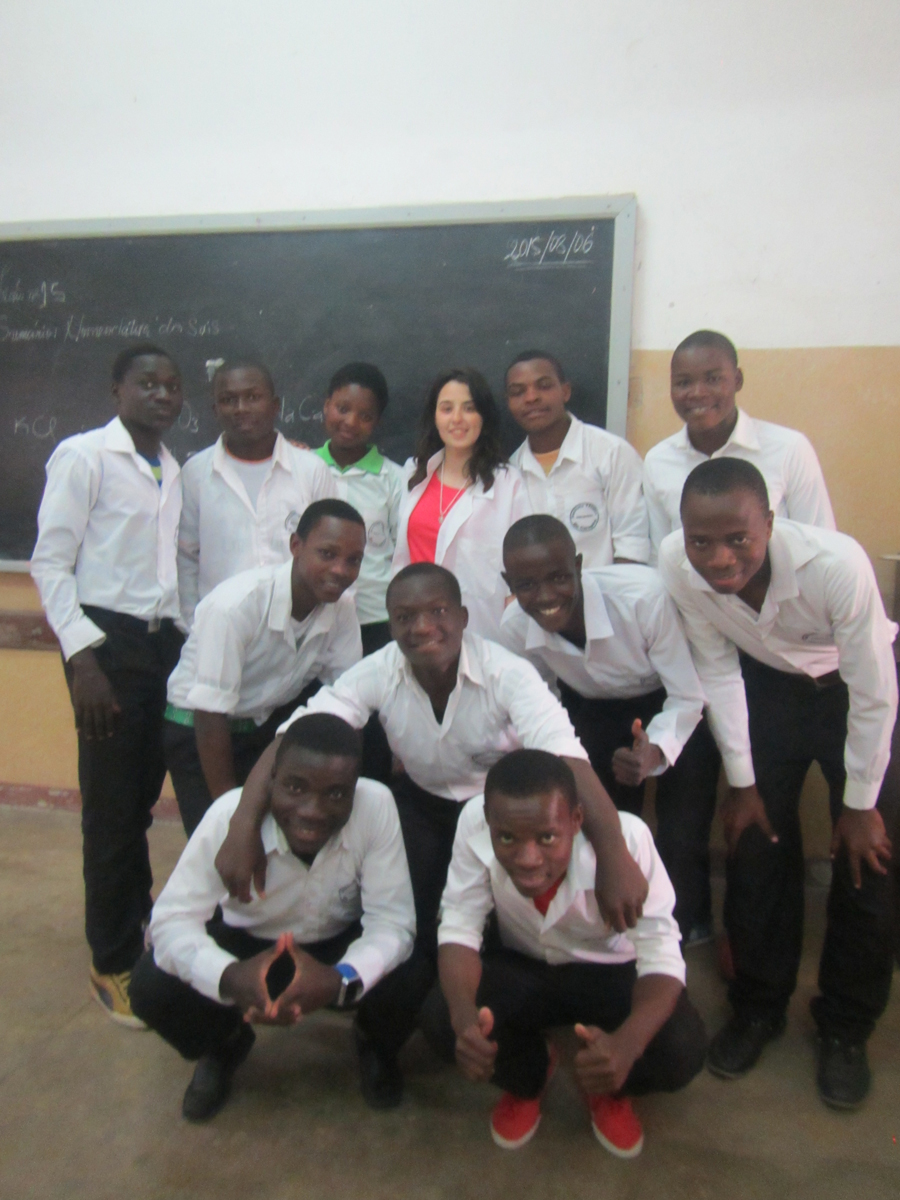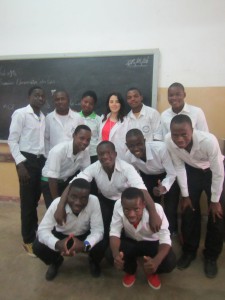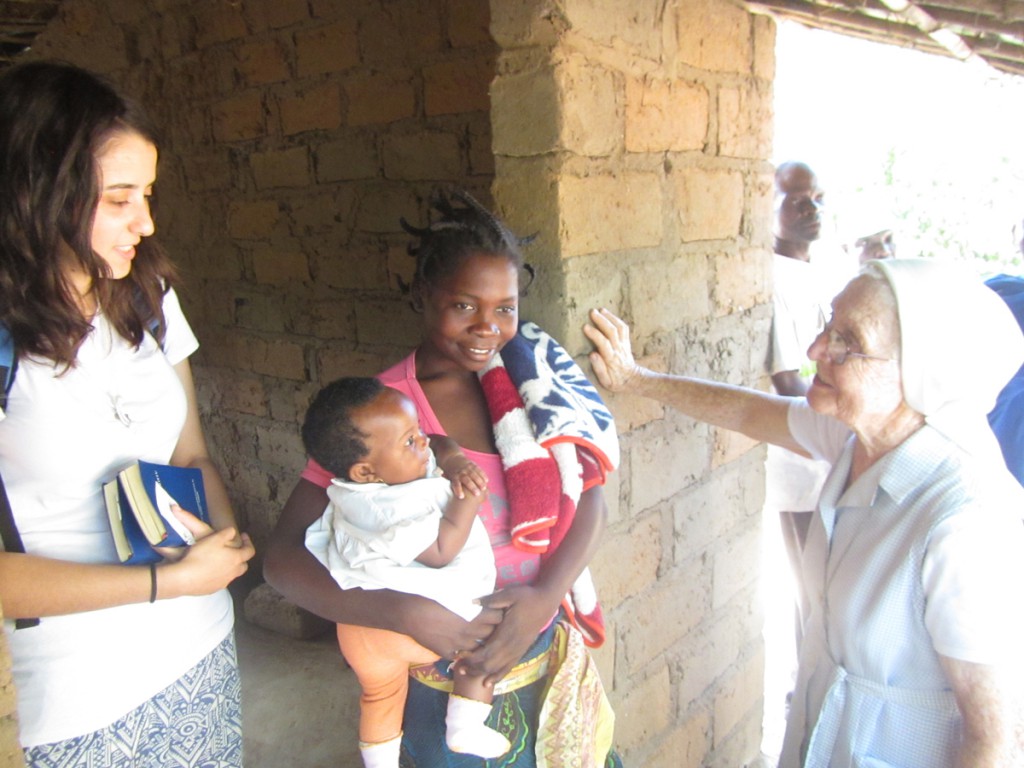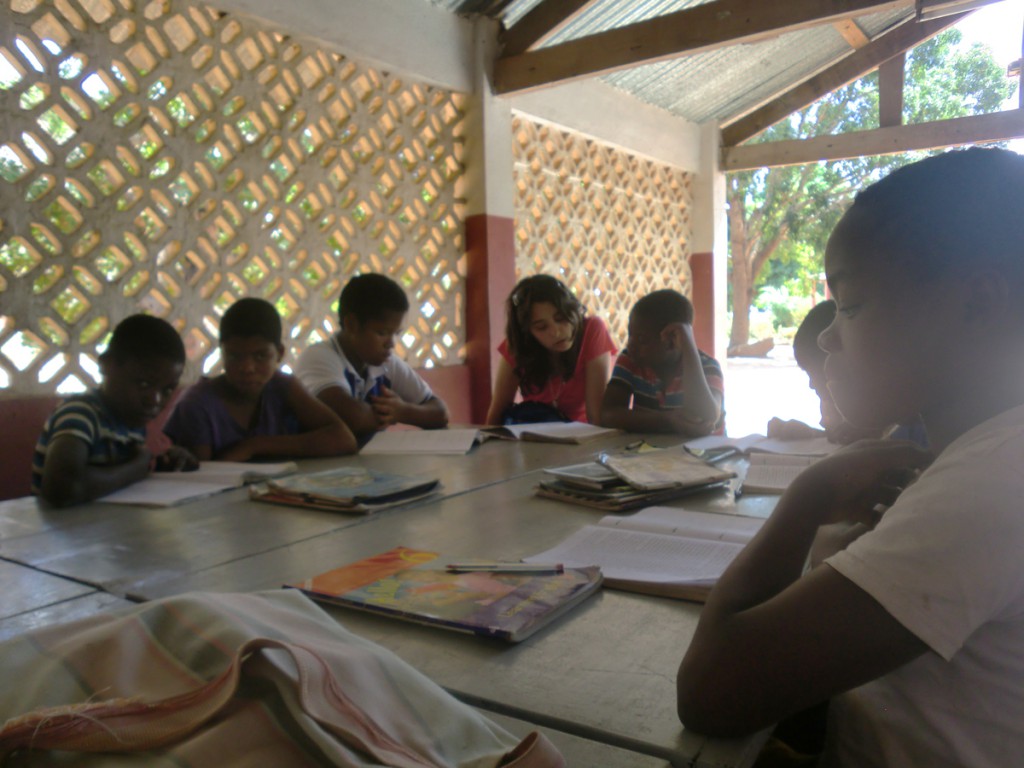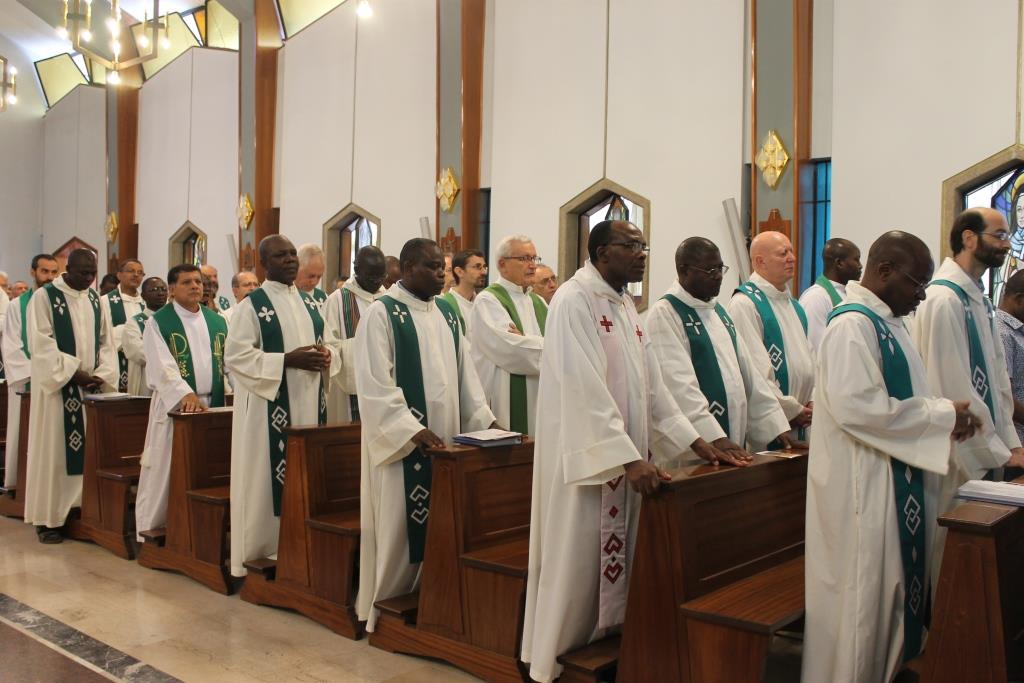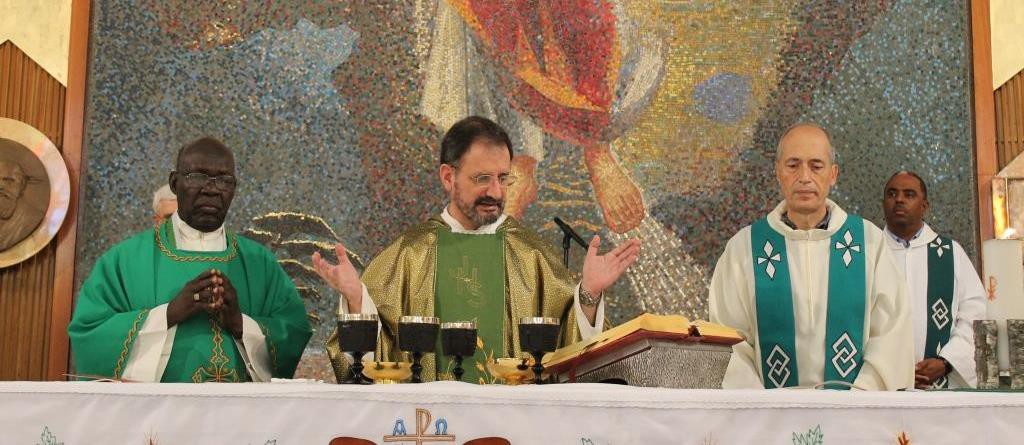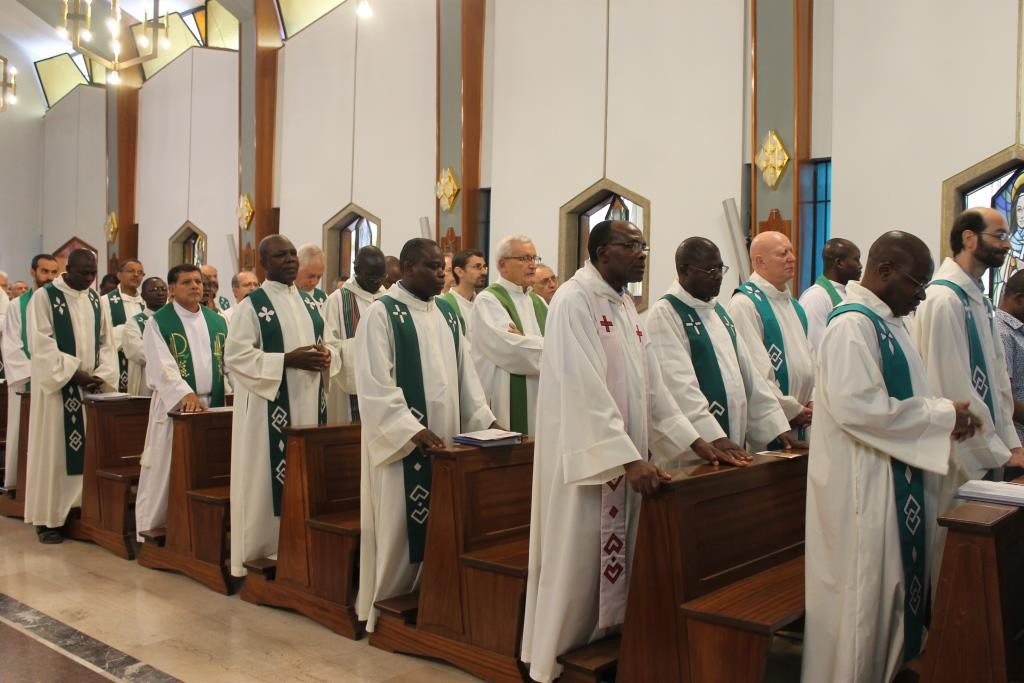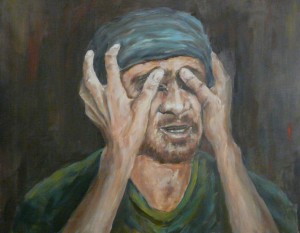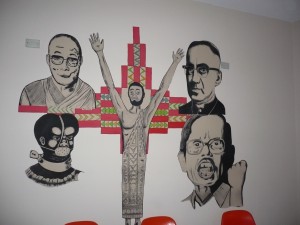This is an ar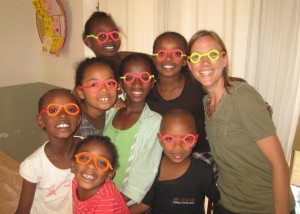 ticle about my art class, though not exactly. This is the story about friends we have met here in Awassa, a truly special husband and wife team, Argow andRachel, and through them, the wonderful kids we have met with whom I have the joy of doing art projects once per week. The couple is an Ethiopian/American duo who met in Hungary at a bible college and felt God calling them to settle in Ethiopia as missionaries. Argow is from Southern Nations Nationalities and Peoples Regional State (SNNPRS), the most ethnically diverse area of Ethiopia with 35 different tribes. The capital of SNNPRS is Awassa, the town where we live. After learning about some negative customs of one tribe, the Hamar, in the far south west of the region, he felt called to get involved. The Hamar people have many superstitions and because their survival day to day is difficult, anything they think will negatively impact the people as a whole cannot be tolerated. For this reason there are several ways a person may become ‘cursed’ and should they become cursed, they are either killed or expelled from the tribe. Unfortunately most often these people are babies and children. The reasons that one could become cursed are many and include: being born out of wedlock, being a twin, having the top teeth come in before the bottom teeth as a baby, not attending one of many rites of passage no matter the reason. These cultural practices of the Hamar are not openly discussed, even by the government, but some local human rights groups estimate that 20% of their children are killed or abandoned.
ticle about my art class, though not exactly. This is the story about friends we have met here in Awassa, a truly special husband and wife team, Argow andRachel, and through them, the wonderful kids we have met with whom I have the joy of doing art projects once per week. The couple is an Ethiopian/American duo who met in Hungary at a bible college and felt God calling them to settle in Ethiopia as missionaries. Argow is from Southern Nations Nationalities and Peoples Regional State (SNNPRS), the most ethnically diverse area of Ethiopia with 35 different tribes. The capital of SNNPRS is Awassa, the town where we live. After learning about some negative customs of one tribe, the Hamar, in the far south west of the region, he felt called to get involved. The Hamar people have many superstitions and because their survival day to day is difficult, anything they think will negatively impact the people as a whole cannot be tolerated. For this reason there are several ways a person may become ‘cursed’ and should they become cursed, they are either killed or expelled from the tribe. Unfortunately most often these people are babies and children. The reasons that one could become cursed are many and include: being born out of wedlock, being a twin, having the top teeth come in before the bottom teeth as a baby, not attending one of many rites of passage no matter the reason. These cultural practices of the Hamar are not openly discussed, even by the government, but some local human rights groups estimate that 20% of their children are killed or abandoned.
Five years ago, Argow learned from his Hamar collaborators that there was a group of nine unmarried woman in a village who were pregnant and because these children would be born out of wedlock, they would have to be killed. Argow wanted to try to save these babies so he packed his car full of bottles, sleepers, diapers and blankets and made the long 15 hour trek to try to get them out of the village immediately after birth. When he arrived, all nine babies had been killed – he arrived too late. He returned to Awassa devastated in a silent, empty car.
After this experience Argow felt even more deeply moved to work with the Hamar people, and therefore he and Rachel founded an orphanage, Ebenezer Grace Children’s Home (EG), 4 years ago. They now have 36 children from newborn to age 12. The children come from all parts of SNNPRS, not only from Hamar, but they feel a particular call to help these little ones. Half of the kids in my art class are Hamar children, cursed for one of those reasons I listed above. Some of the children were ‘rescued’ prior to their murder by the intervention of some sympathetic Hamar who disagree with the traditions. Some of their parents tried to hide their cursed child to save and keep them, but eventually the only way to save them was to have them moved to EG. Over these past four years, Argow and Rachel have been trying to build good relationships with the Hamar tribe leaders. In a bold move several months ago, they took a group of 6 beautiful “cursed” children back to their villages to visit with their families and the community. They thought to stay only for a short visit but several of the parents begged them to stay for days. Maybe these types of encounters will help engage the process for the Hamar to confront their traditions and gradually in time to change them.
The other children in my class have arrived at EG due to a variety of circumstances that lead to children being orphaned: parents dying of HIV/AIDS, a widowed mother too poor to raise them, abandoned at birth, and health conditions that make life in the rural countryside difficult. One of my students has a heart condition and is nearly blind. For another there is no information on her scattered past – she was found last year wandering the streets alone of a nearby town, her clothes and hair infested with lice. When asked her story, there was no response – she is both deaf and mute. They guessed her to be about 12 years of age. She was given a name, a date of birth, new clothes and hopefully now a brighter future. These are my students, each one with their own story, each one special and wonderful.
Fast forward to today and each child is flourishing despite the limitations of institutional care. They have found love and friendship with their “siblings” at Ebenezer Grace and the staff who care for them. Argow and Rachel consider them all to be part of their family (they have 5 biological children of their own) and are very devoted to caring for them and providing them with every opportunity they can. I have observed that the line between Argow and Rachel’s own children and their EG children is somehow blurred, in a beautiful way. Argow and Rachel are making the longterm commitment to raise the children until adulthood, a commitment one can only make with deep faith in God’s fidelity and providence. The children are being raised to know Jesus and to know God’s love for them and for every person. It is the hope that some of the Hamar children one day will return as adult Christians to serve their own people, being themselves living examples of the dignity of each human life.
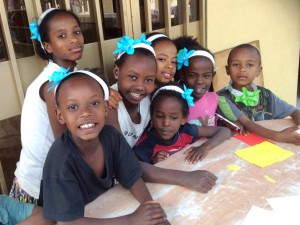 The first time I met Argow, he asked me “what can you do with these kids?” and the next Tuesday I was teaching art. They all attend school, even a school for the hearing impaired. They play sports, help with the younger children, braid each other’s hair, have birthday parties and just goof around. They have their own interests and gifts and are growing into fine young people. To my delight they all like art. I have an enthusiastic group of 12 (8 girls and 4 boys), all age 5 to 12. When you start with eager children, yellow construction paper, a dab of glue, a button, a piece of felt, a splash of bright paint, and a few sparkles ….voila you get a masterpiece!
The first time I met Argow, he asked me “what can you do with these kids?” and the next Tuesday I was teaching art. They all attend school, even a school for the hearing impaired. They play sports, help with the younger children, braid each other’s hair, have birthday parties and just goof around. They have their own interests and gifts and are growing into fine young people. To my delight they all like art. I have an enthusiastic group of 12 (8 girls and 4 boys), all age 5 to 12. When you start with eager children, yellow construction paper, a dab of glue, a button, a piece of felt, a splash of bright paint, and a few sparkles ….voila you get a masterpiece!
As I look upon my students when they are quietly doing their work, I am grateful that their lives were saved. These kids are as unique as the materials we use to create our masterpieces. Each one is a masterpiece of God’s creation.




